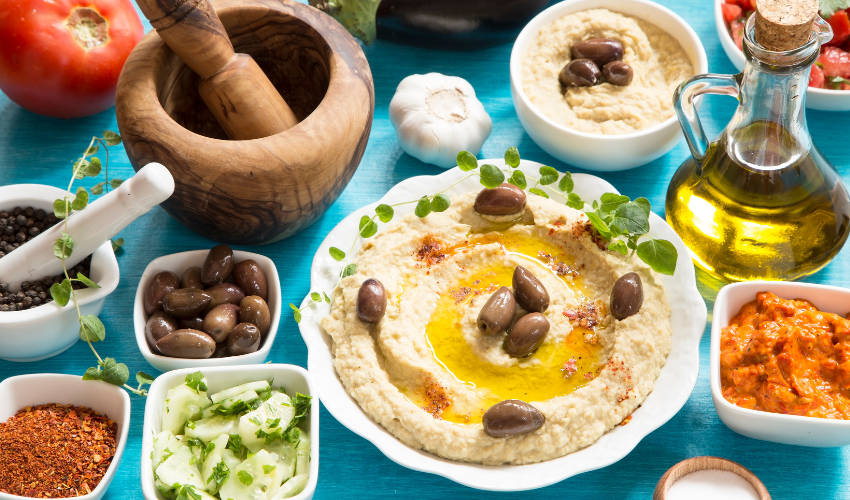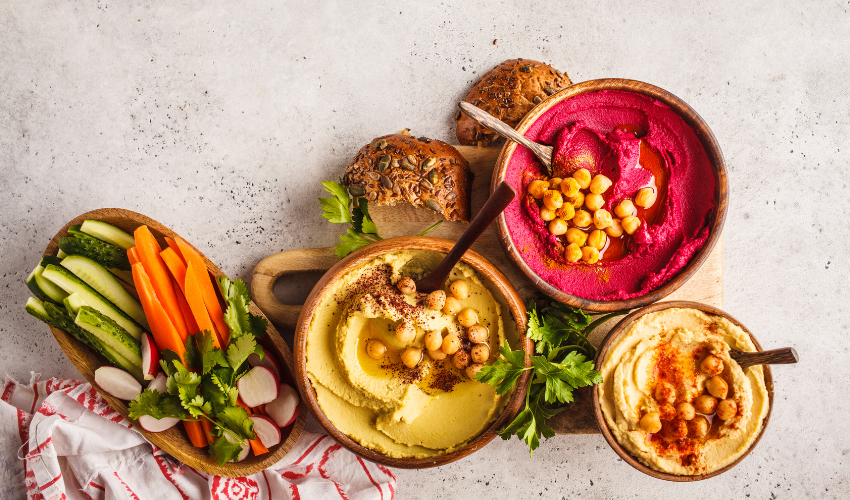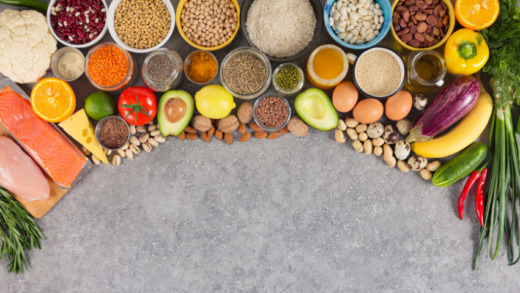Hummus is a popular Middle Eastern dip or spread that has gained worldwide recognition and popularity. It is known for its smooth and creamy texture, nutty flavor, and high nutritional value. Humus is a versatile food that can be enjoyed with bread, pita chips, vegetables, or as a flavorful addition to sandwiches, wraps, and salads. But, what is humus made of? In this article, we will explore the traditional and modern variations of humus ingredients, and their nutritional benefits.
The Traditional Hummus Ingredients
Hummus has been a staple food in the Middle East for centuries. The traditional humus recipe consists of just a few basic ingredients, which are as follows:
-
Chickpeas
The main ingredient in hummus is chickpeas, also known as garbanzo beans. These are a good source of protein, fiber, and complex carbohydrates. Chickpeas are boiled or pressure-cooked until soft before being blended to create the smooth texture of humus.
-
Tahini
Tahini is a paste made from ground sesame seeds. It adds a nutty flavor and creaminess to the humus, and is a good source of healthy fats, vitamins, and minerals.
-
Garlic
Garlic is a common ingredient in hummus, adding a pungent flavor and numerous health benefits. It has antioxidant and anti-inflammatory properties and can boost immunity.
-
Lemon Juice
Lemon juice is added to hummus for its tangy flavor and acidic content, which helps to balance the richness of the other ingredients. It is also a good source of vitamin C and other antioxidants.
-
Olive Oil
Olive oil is a heart-healthy oil that is used to thin out the hummus and add a smooth texture. It is also rich in monounsaturated fats, which can lower cholesterol levels.
-
The Modern Variations of Hummus Ingredients
As hummus has become popular worldwide, people have experimented with new flavors and ingredients. Here are some modern variations of humus ingredients:
-
Spices
Spices like cumin, paprika, and chili powder can be added to hummus to enhance its flavor and add heat. They also have numerous health benefits, such as aiding digestion and reducing inflammation.
-
Vegetables
Vegetables like roasted red peppers, sun-dried tomatoes, and spinach can be added to hummus to create unique flavors and colors. They also add additional nutrients and fiber to the dip.
-
Nuts and Seeds
Nuts and seeds like pine nuts, pumpkin seeds, and almonds can be used as toppings or blended into the hummus to add crunch and nutty flavors. They are a good source of healthy fats, protein, and minerals.

FAQs
Is hummus gluten-free?
Yes, humus is gluten-free as it is made from chickpeas and other gluten-free ingredients. However, you should always check the label before buying store-bought humus as some may contain additives that are not gluten-free.
Can I make hummus without tahini?
Yes, you can make humus without tahini by substituting it with other nut butters, like almond or cashew butter. You can also use Greek yogurt or mayonnaise for a creamier texture.
How long does hummus last in the fridge?
Hummus can last in the fridge for up to a week, but this can vary depending on the freshness of the ingredients used and how it is stored. It is important to keep the humus in an airtight container and to avoid cross-contamination by using a clean utensil to scoop it out each time.
Can I freeze humus?
Yes, you can freeze humus for up to 3 months. To freeze, put the humus in an airtight container and leave some space for expansion. When you’re ready to use it, thaw it in the fridge overnight and stir it well before serving.
Is humus high in calories?
Humus is a nutritious food, but it is also high in calories due to its ingredients. One serving of humus (about 2 tablespoons) contains around 70-100 calories, depending on the brand and recipe.

Conclusion
Hummus is a delicious and nutritious food that has gained worldwide popularity. It is made of simple, wholesome ingredients that provide numerous health benefits. Traditional humus ingredients like chickpeas, tahini, garlic, lemon juice, and olive oil can be complemented by modern variations like spices, vegetables, and nuts to create unique and flavorful dips. Whether you enjoy humus as a snack, a spread, or a dip, knowing what is hummus made of can help you appreciate its flavors and nutritional value.






















